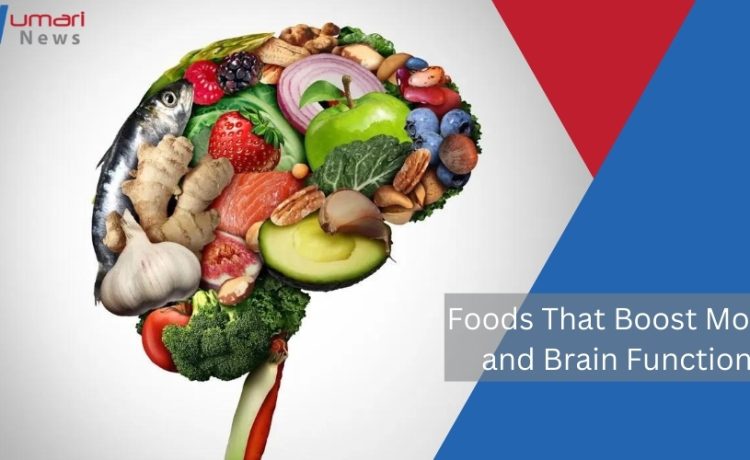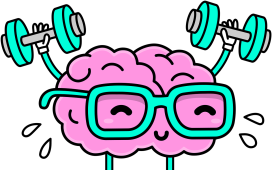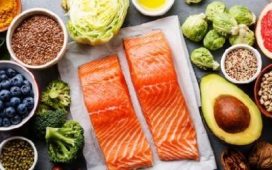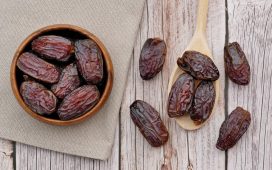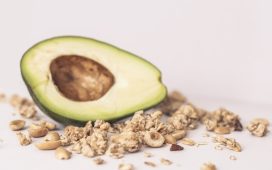What we eat has a significant impact not only on our physical health but also on our mental well-being. Certain foods are known to improve brain function, enhance cognitive performance, and even lift your mood.
Incorporating these foods into your diet can provide essential nutrients that support the brain’s structure and function, as well as regulate neurotransmitters that influence how we feel. In this article, we will explore some of the best foods that boost mood and brain function.
1. Fatty Fish
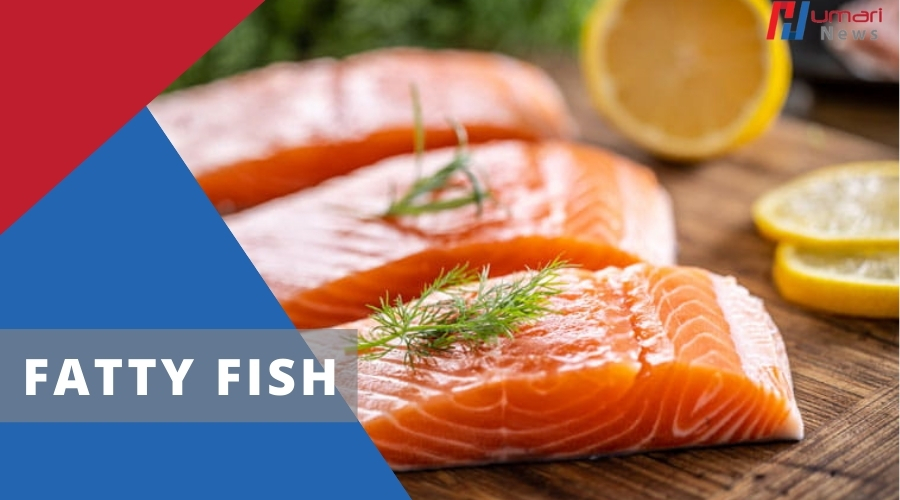
Fatty fish, such as salmon, mackerel, trout, and sardines, are rich in omega-3 fatty acids, particularly EPA (eicosapentaenoic acid) and DHA (docosahexaenoic acid). These omega-3s are crucial for maintaining brain health, as they make up a significant portion of the brain’s cell membranes. Omega-3s are known to:
- Improve cognitive function: Omega-3s enhance memory, learning, and decision-making abilities.
- Protect against mental decline: Studies have shown that a diet high in omega-3s may help reduce the risk of age-related cognitive decline and dementia.
- Boost mood: Omega-3s are also linked to improved mood and may help alleviate symptoms of depression and anxiety.
Adding fatty fish to your diet a couple of times a week can significantly boost your brain’s function and mood.
2. Dark Chocolate
Dark chocolate contains compounds like flavonoids, caffeine, and serotonin, all of which can positively affect brain function and mood. Flavonoids, a type of antioxidant, improve brain plasticity, which is essential for learning and memory. They also help improve blood flow to the brain, enhancing cognitive performance.
Moreover, dark chocolate stimulates the production of endorphins and serotonin, which are the brain’s natural mood boosters. Eating a small amount of dark chocolate (at least 70% cocoa) a few times a week can provide a natural lift in mood and cognitive function.
3. Leafy Greens
Leafy green vegetables like spinach, kale, and broccoli are packed with brain-boosting nutrients, including vitamin K, beta carotene, folate, and lutein. These nutrients have been shown to slow cognitive decline and protect against memory loss as we age.
- Vitamin K is essential for forming sphingolipids, a type of fat that is highly dense in brain cells.
- Folate helps reduce inflammation, which has been linked to depression.
Including a serving of leafy greens in your daily diet can promote long-term brain health and improve mental clarity.
4. Berries
Berries, particularly blueberries, strawberries, and blackberries, are high in antioxidants like anthocyanins, which have powerful anti-inflammatory and brain-protecting properties. These antioxidants help reduce oxidative stress and inflammation in the brain, which can damage brain cells and impair cognitive function over time.
Studies have also shown that eating berries can:
- Improve memory: Regular consumption of berries has been linked to delayed brain aging and improved memory.
- Enhance mood: Berries boost dopamine, a neurotransmitter involved in feelings of pleasure and motivation.
Adding a handful of berries to your breakfast or as a snack can provide a tasty way to improve both mood and brain function.
5. Nuts and Seeds
Nuts and seeds are excellent sources of vitamin E, an antioxidant that protects brain cells from oxidative stress. High levels of oxidative stress can lead to mental decline, especially as we age. Nuts such as almonds, walnuts, and hazelnuts are particularly high in vitamin E and have been linked to better cognitive performance and reduced risk of Alzheimer’s disease.
- Walnuts, in particular, contain high levels of DHA, a type of omega-3 fatty acid essential for brain health.
- Pumpkin seeds are rich in magnesium, iron, zinc, and copper, all of which play a role in protecting the brain and improving mood.
Incorporating a handful of nuts and seeds into your diet can help improve your brain’s longevity and function.
6. Whole Grains
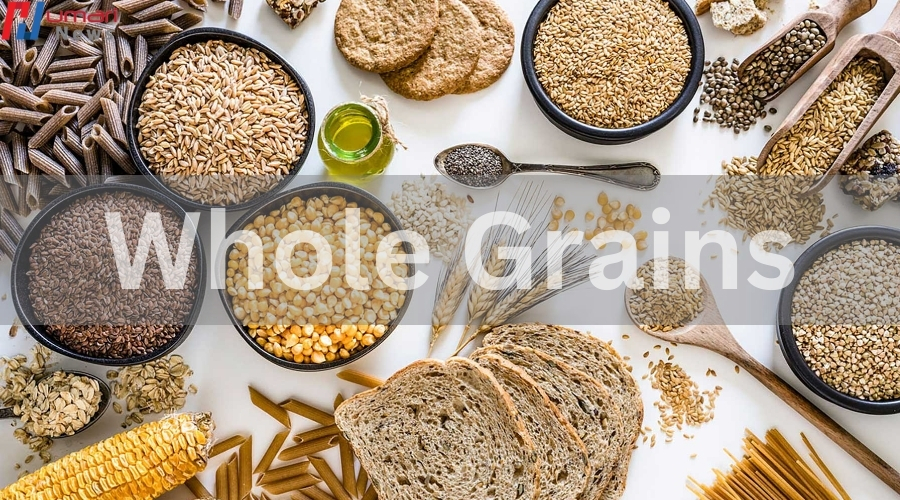
Whole grains, such as oats, quinoa, and brown rice, provide a steady source of glucose, which is the brain’s primary energy source. The complex carbohydrates in whole grains are digested slowly, providing a stable release of energy that helps keep you focused and alert throughout the day.
In addition to providing energy, whole grains contain high levels of B vitamins, which are crucial for brain health. B vitamins, including B6, B12, and folic acid, help reduce inflammation and support the production of neurotransmitters like serotonin, which regulates mood.
Switching to whole grains in your diet is a simple way to support brain function and maintain a stable, positive mood.
7. Avocados
Avocados are rich in healthy monounsaturated fats and among the best foods that boost mood and brain function, support brain health by improving blood flow and protecting nerve cells. They are also a good source of vitamin K and folate, both of which help prevent blood clots in the brain and support cognitive function.
Additionally, avocados contain tyrosine, an amino acid that the body uses to produce dopamine, which is linked to mood regulation and cognitive performance.
Adding avocado to your meals, whether on toast or in salads, can provide long-lasting benefits for both brain health and mood.
What you eat has a profound effect on your brain’s function and your emotional state. By incorporating foods like fatty fish, dark chocolate, leafy greens, berries, nuts, seeds, whole grains, and avocados into your diet, you can provide your brain with the nutrients it needs to function optimally.
These foods that boost mood and brain function help enhance memory, focus, and mood, making them essential for both mental well-being and cognitive health.

